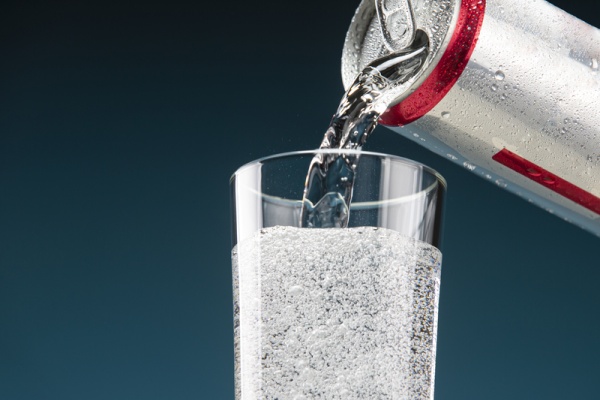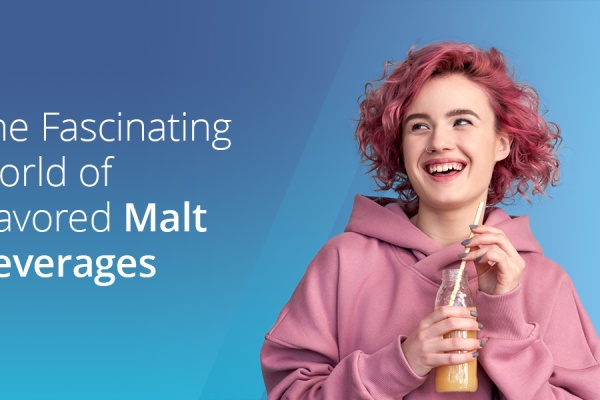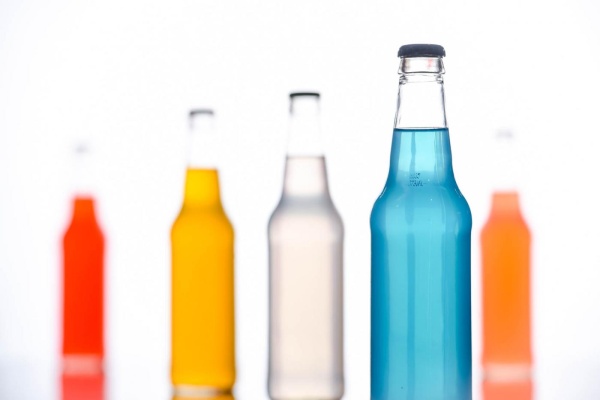How to Start an Alcohol Brand

The beverage industry is booming all around, including sales of alcoholic beverages. As more Gen Zers reach the drinking age, 47% between the ages of 21 and 24 drink at least weekly. This is more than most consumer age groups of between 25 and 54.
This makes it an ideal time to monitor how Gen Z adults will shape the trends, from exciting ready-to-drink cocktails to a renewed interest in classic spirits with complex flavors, and develop alcoholic beverages that meet those interests.
In this guide, we delve into the essential steps and considerations to navigate this dynamic industry successfully. From identifying your target market and positioning your product for success, to formulating your product and navigating the regulatory landscape, this guide offers valuable insights into bringing your vision of an alcoholic beverage brand to life.
While starting any business is a considerable undertaking, launching an alcohol brand requires specialized expertise. From sourcing the right alcohol base to formulating, bottling and packaging your unique drink, our highly experienced team of beverage specialists leverage 20 years of beverage development and operations experience to help get you to market efficiently and profitably. We can also help navigate the complex world of federal and state regulatory agencies.
Creating Your Product
The beginning stage of creating your product is one of the most exciting parts of the journey. It is where you get to enjoy the most creative freedom. In the initial part of development, you refine your vision for your product while keeping your target market in mind. Creating a product is very much like art — you have a vision and a blank canvas — and you get to refine and enrich the masterpiece for potential customers.
Just like art, your customers will connect with your alcohol brand in unique ways. What story does your brand want to tell? Do you envision a sophisticated spirit that exudes elegance and luxury? Perhaps your aim is to evoke a sense of fun and adventure, with bold flavors and unconventional pairings. Or, maybe you've identified a unique niche, catering to a specific community with distinct preferences.
Whatever your vision, embrace it and use it to meticulously craft a beverage that speaks directly to your ideal customer's heart (and taste buds). Your vision is the cornerstone of your brand, so refine it deliberately, and you'll be well on your way to creating an alcohol experience that truly connects.
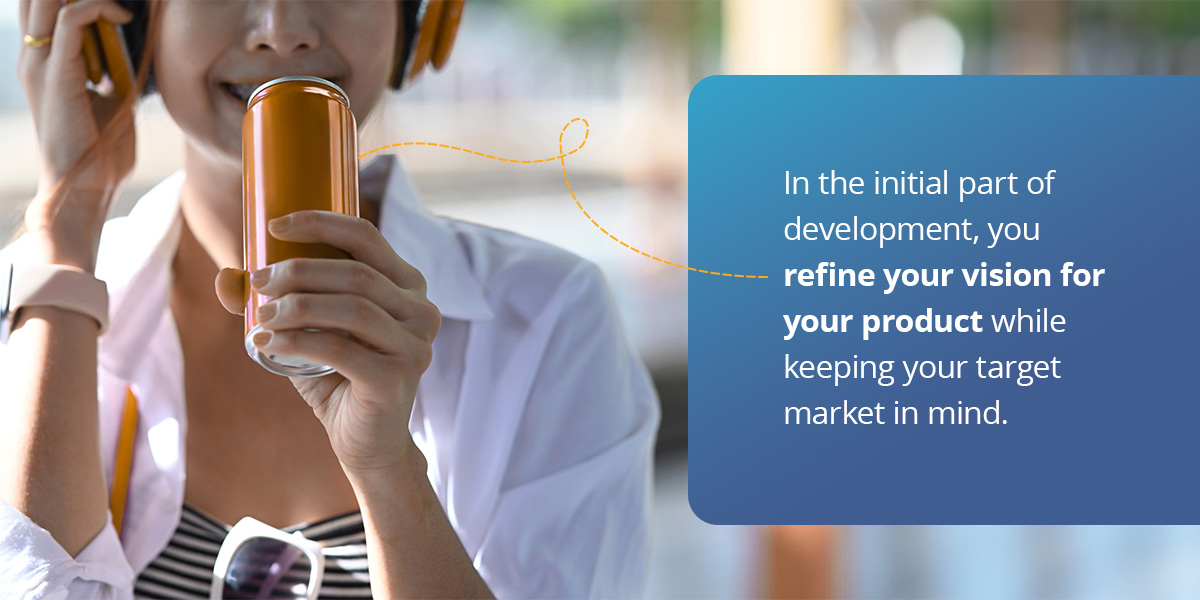
Understanding Your Ideal Customer
Understanding your target market is crucial for any beverage entrepreneur, as it guides everything from product development to marketing and distribution. Get to know your market in the following ways:
- Conduct market research: Conduct thorough research on your target market, competitor offerings and industry trends. This will help you identify key opportunities, differentiate your product and develop a winning strategy. Online tools like Google Trends can also help you get the insights you need. Leveraging free market-related statistics online and partnering with an industry expert is also an effective way of understanding consumer trends and getting comprehensive insight.
- Perform a competitive analysis: Identify existing brands targeting similar demographics or offering comparable products. Analyze their strengths, weaknesses and unique selling propositions (USPs). See whether they have any gaps in their offerings and whether you can develop an alcoholic drink that surpasses customer standards.
- Define consumer demographics and explore psychographics: Define your ideal customer by considering key indicators like gender, age, income levels and geographical location. Think beyond traditional categories and explore emerging niche markets such as health-conscious drinkers or sustainability-focused consumers. What are their interests, values and lifestyles? What motivates them to choose particular beverages? Are they social drinkers, connoisseurs or budget-conscious? What influences their buying decisions? Is it taste, brand image or price? Do they consume alcohol at home, bars or parties?
- Issue surveys to establish focus groups: Validate your assumptions and gather direct insights by engaging with potential customers directly. Conduct and issue surveys online on a particular geographic area you wish to sell in. This can help you gather feedback directly from potential customers to ensure you accurately cater to their needs. Social media can also offer insights into current trends.
Positioning Your New Beverage for Success
If everyone believed that there wasn't space for anything new on the market, there wouldn't be anything new on the market! The best mindset you can have going into launching your new beverage is that you are creating your own product, and you can find ways to make it unique and carve out a place for it on the market. For startup alcohol beverage companies, establishing a point of differentiation is crucial for long-term success and setting yourself apart from other brands in a crowded and competitive market.
It is critical to explore gaps in the market. One effective method you could employ when starting your own alcohol brand is the Blue Ocean Strategy, which helps you identify uncontested market space and avoid the "red ocean" of fierce competition. This approach helps you carve out a new market space by offering a beverage with a unique value proposition. The key ideas of the Blue Ocean Strategy include:
- Shifting focus: Instead of battling competitors head-on, create new demand by offering something entirely different that hasn't been seen before.
- Innovating with value: Innovation shouldn't be for the sake of being different — it should address unmet customer needs and deliver superior value.
- Avoiding me-too products: Avoid copying existing options with minor tweaks. Aim for revolutionary, not evolutionary changes that define an entirely new space.
By following these principles, you can avoid competing head-to-head with the competition and achieve growth through innovative ideas that resonate with customers.
Of course, you can always adapt the strategy to your specific brand's needs. Still, even if your idea for the alcoholic beverage falls into a highly competitive category, avoid blindly chasing trends or copying competitors. It's about identifying your unique strengths, aligning with your target audience's needs and creating a distinct and lasting value proposition.
By dedicating time and effort to this critical aspect, startup alcohol beverage companies can overcome the challenges of a crowded market, attract loyal customers and build a solid foundation for sustainable growth.
Developing Your Beverage
Many elements go into starting your own alcohol brand, but the foundation of your business lies in formulating a beverage that is flavorful, enjoyable and unique.
Formulating a Winning Recipe for Your Alcohol Brand
Formulating an alcoholic beverage is an involved process. Taste is one of the most crucial factors, but there are also other important considerations. For example, depending on the alcohol base you choose, factors like the tax rate you receive, the regulatory body you need to comply with and the retail channels that apply to you may vary. Generally speaking, you can expect developing your beverage to involve:
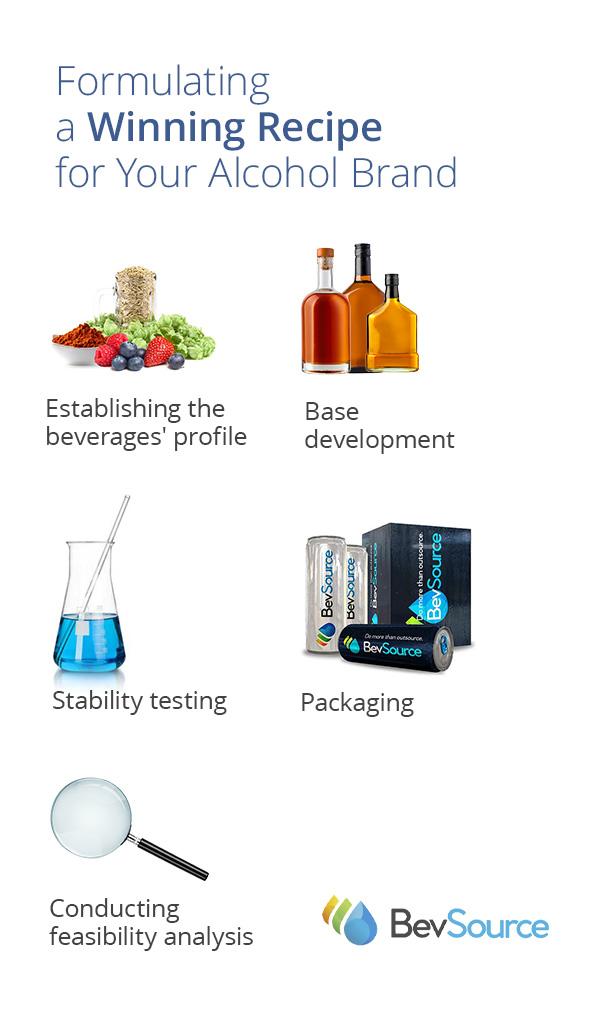
- Establishing the beverages' profile: During this stage of development, you will work with experts to brainstorm on ingredients and flavor profile, aroma, mouthfeel and appearance. Tell formulators if there are any key ingredient restrictions, desired product and nutritional claims and what your target costs are. You'll also need to decide on the alcohol base, which will have flavor and cost implications and impact how you go to market.
- Base development: After creating a product profile, you'll begin work creating the base for your liquid, including procuring the ingredients and flavors. Professionals will help source the alcohol base and other ingredients you need to develop your beverage. You typically receive a few rounds of prototypes to help perfect the flavor and appearance.
- Stability testing: Experts will conduct stability testing to confirm the compatibility and solubility of ingredients.
Packaging: Before you go into production, you will also need to consider how to package your beverage. Consider factors like shelf life, ingredient compatibility, sustainability and practical product display options. This may also affect how your drink is pasteurized or which co-packer you can work with.- Conducting feasibility analysis: BevSource can also help by offering a feasibility assessment. This gives you insight into the viability of your formula and can address potential challenges as you move to getting your beverage on the shelves.
Developing your beverage is where the real work begins! While entrepreneurs can develop and commercialize a new beverage on their own, this can often take longer, cost more and be riskier. Working with a professional beverage formulator like BevSource can help you get to market faster and with fewer mistakes that result in extra time and money. It is also essential for getting the right ingredients and ensuring overall compliance.
Understanding the Rules and Regulations of Starting an Alcohol Brand
Familiarizing yourself with the U.S.'s three-tier system of alcohol distribution and the Alcohol and Tobacco Tax and Trade Bureau (TTB) regulations regarding labels and advertising is of utmost importance so that your brand is compliant at all times.
The Three-Tier System
In the U.S., the laws around producing, distributing and selling alcohol are highly regulated. With the three-tier system, manufacturers (including brand owners) sell to licensed distributors — this is tier one. Tier two involves distributors who sell to licensed retailers. Tier three comprises licensed retailers, such as liquor stores, restaurants, grocery stores and bars, authorized to sell alcoholic beverages to consumers. While the three-tier system is dominant, it's yet to be universally applied across all U.S. states. Control states, for example, directly control the sale of distilled spirits or all alcoholic beverages through state-run stores or agencies.
As someone starting an alcohol brand, the most important takeaway regarding the three-tier system is that for most alcoholic beverages, you cannot sell directly to consumers (DtC). DtC is an option in some states, but also highly regulated and convoluted.
The TTB
The Alcohol and Tobacco Tax and Trade Bureau (TTB) might not be the first name that pops into mind when launching your beverage alcohol brand, but it's one you can't afford to ignore! The TTB regulates the production, importation and distribution of all alcoholic beverages in the United States. This includes setting standards for labels, ingredients, alcohol content and advertising. They also issue the permits and licenses you need to sell your product.
In addition to the TTB, states have their own complex set of laws that can contradict TTB. The TTB is involved with taxing and labeling, but states are responsible for regulating everything else, and in some cases, have incremental tax accountabilities as well as state specific labeling requirements. In addition, each state has a network of licensing requirements that must align with your business type.
All these legalities may seem tricky to navigate, but partnering with a beverage industry leader like BevSource takes the unknowns out of the equation. We have a professional regulatory team ready to collaborate with you in starting an alcohol beverage company by offering professional guidance on licensing and approvals.
Marketing and Selling Your Alcoholic Beverage
After creating and developing your formula and getting your permits and approvals, it is finally time to get your beverage to your customers and market your brand!
Getting Your Beverage to Consumers
Deciding on where and how you will be selling your beverage is an important part of reaching your customers. As a brand owner, you will need to approach distributors to get your drink to retail. Here are a few steps you can take to successfully deliver your beverage to consumers:
- Consider starting small, then scaling: Building a strong local presence lets you refine your strategy and gather valuable feedback and data. It's also easier to manage logistics and marketing with a smaller footprint. While national distribution offers faster growth and wider reach, it often requires robust production capacity, a solid budget for marketing and distribution and navigating complex legal and regulatory hurdles to build the distribution infrastructure.
- Vetting your partners: Choose distributors who understand your brand, target audience and distribution network. Consider their track record, portfolio and ability to reach your key markets. By working with a distributor, you could create various strategies together that help build brand awareness.
- Retail channels: Will you be selling on- or off-premise or both? Understand their buying criteria and promotional opportunities. Tailor your approach to each retailer, considering their customer base and preferences.
Marketing Your Alcohol Brand
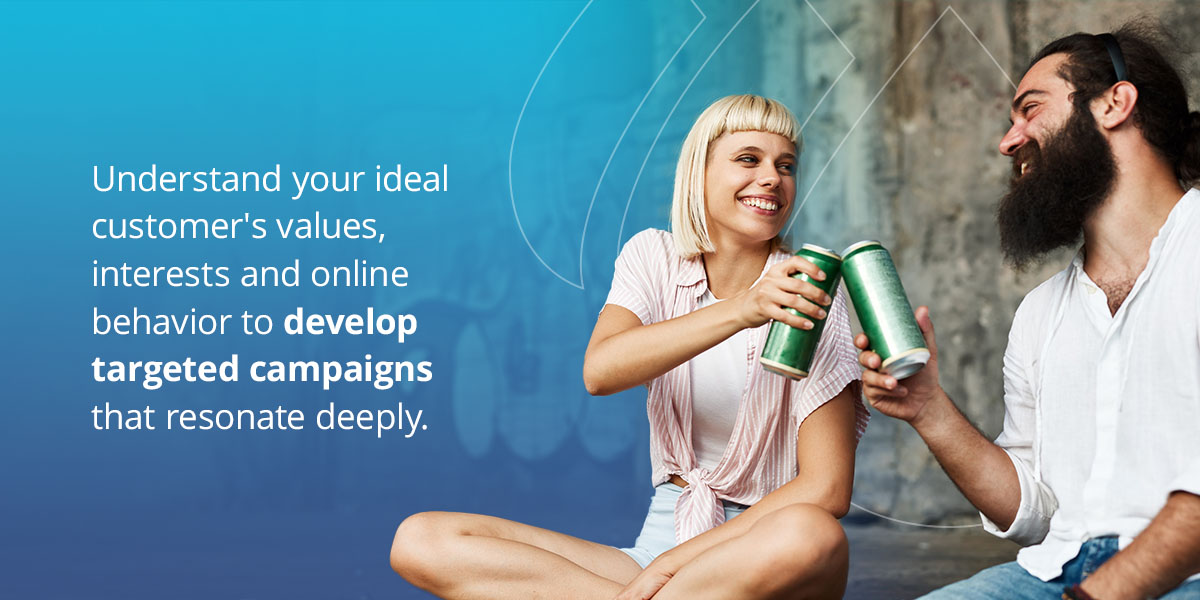
Marketing is an involved process, and it's crucial for your brand's success. A solid marketing campaign involves:
- Positioning your brand: One of the first steps when you design an effective marketing strategy is creating a memorable brand image and voice. What do you want consumers to feel when they think of your brand? How do you want consumers to perceive it? You want to position your brand by having an identity that makes it easy for consumers to separate you from the competition.
- Leveraging your packaging: Choosing the right packaging is important for preserving flavor and freshness, but it's also essential to ensure your packaging strategy aligns with your brand. Do you have sustainability goals? Is convenience or portability important to your target market? Are you trying to convey a luxury look and feel? Designing visually appealing and memorable packaging that reflects your brand values and stands out on shelves will be a critical part of your marketing strategy. Brainstorm ways to make your bottles or cans instantly stand out on the shelves. Go for colors, images, logos or slogans that evoke the flavor of your drink, or other unique aspects of your beverage.
- Connecting with your audience: Go beyond demographics and delve into psychographics. Understand your ideal customer's values, interests and online behavior to develop targeted campaigns that resonate deeply. Showcase your values, mission and how your beverage is more than just a drink. Consider interactive experiences that allow consumers to engage with your brand and product firsthand. This could be through pop-up events, tastings or collaborations with relevant partners.
- Using various platforms: How will you reach and engage your audience? Even in this digital era, having an effective mix of traditional and digital marketing campaigns is key for getting your brand off the ground. Before your brand launches, designing a user-friendly website and engaging social media pages is a must. Take the initiative to have blog and video content ready for launch. You could also explore ways to partner with social media influencers for sponsored ads and launch campaigns on various social platforms. While online marketing techniques are the norm, don't overlook traditional advertising methods like brand or influencer partnerships, billboards, TV and radio adverts and print advertisements.
- Launching with a bang: Make your beverage's release as memorable as possible when you launch. Giveaways are effective for creating buzz and engagement around your brand. You can use your social media pages to run giveaways that encourage users to sign up, comment, like and share. You can use referral giveaways, too. The key is for giveaways and launch parties to match your brand image. It is also important to remember that giveaways must follow state and federal regulations and that you generally cannot offer alcohol as part of your prizes. Work with retailers and distributors to get in-store samplings and promotional displays.
Remember, the perfect marketing mix depends on your brand, target audience and budget. By understanding your audience, crafting a compelling story, utilizing the right channels and constantly analyzing and adapting, you'll pour the foundation for a successful alcoholic beverage brand.
Start an Alcohol Brand With Expert Guidance From BevSource!
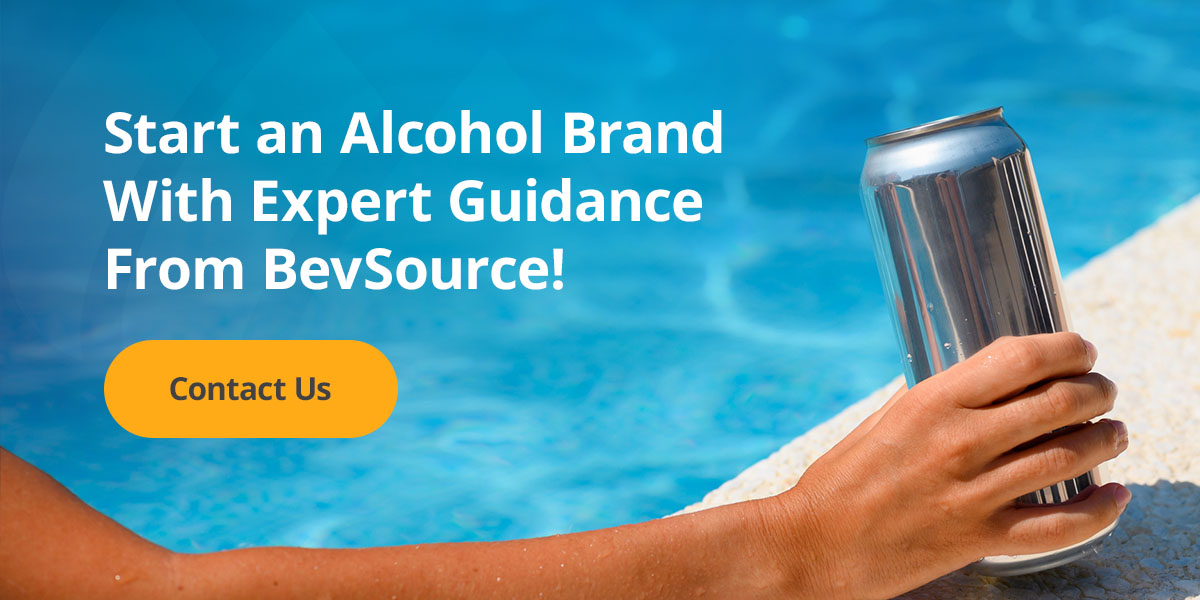
Embarking on a journey to start your own alcohol brand is an exciting journey. At BevSource, we help you with finding the right alcohol base for your formulation so that you can take a leap forward in creating your beverage and your brand.
We offer an extensive range of services and an unmatched network of suppliers and vendors that support your beverage creation at every stage of development. With our expertise, we can also pilot the production of alcoholic beverages across a variety of bases, including beer, malt beverages, sugar brew, spirits and wine.
Most importantly, our regulatory team helps you develop a brand that complies with the laws and regulations around developing alcohol. Contact our beverage development specialists to get your new alcohol brand started today!
